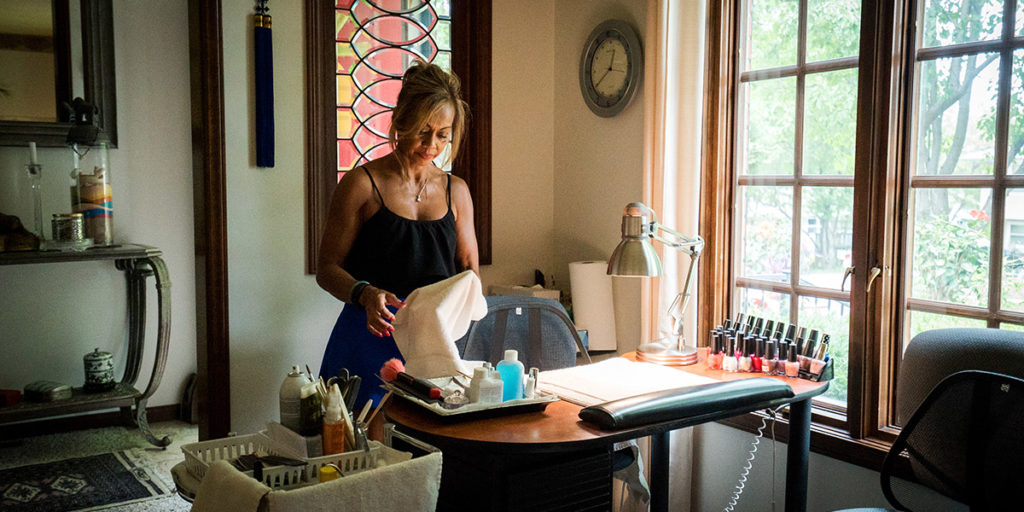
At the beginning of her career, people were surprised when they learned that Dr. Colleen Jones’s field of study was centered in the business world.
They wondered how an African American woman who was so socially conscious and active could “work for the man”, and would even choose to do so.
She didn’t see the problem.
“I just had the idea that I would study and work hard and go home to help my mom open a business. I didn’t realize that becoming an entrepreneur was the last thing my studies were preparing me for.”
Dr. Jones, now a retired Professor of Management from the College of Business at the University of Nebraska – Lincoln and President of the Melvin Jones Foundation, looks back and points to one of the biggest things her education did teach her: that the big shifts, the earthquakes of change, begin with a small underground action.
Even if that action starts with getting a business degree.
When Colleen first arrived at the University of Iowa in 1968, she discovered a hotbed of activism on the midwestern campus. The dorms had recently been desegregated and antiwar demonstrations had shut down the campus during the spring before her arrival. Through circumstances, she found herself caught up in the times and responding to what was in front of her.
“I was a true baby boomer, growing up between the Civil Rights Movement and the Vietnam War and the Women’s Movement – I was swept up in the wave.”
She felt something in the air that said, “You need to understand what’s going on. You need to be a citizen of the world. You need to take care of home, but also community.”
While at Iowa, Colleen gained a strong foundation for her approach to the world and her career. She worked hard at her studies, but also invested time in the community around her, knowing that by taking part in things like creating a Culture Center and chairing Black History Week, she was making the way better for those who would follow her.
She observed the leadership on campus – particularly the president of the University, the head of her scholarship program and a VP of Student Affairs – all who created an atmosphere where positive activism was encouraged. She began to take notice of how to run and make change within a big structure.
In the middle of her studies and campus engagement, Colleen also met the man who would eventually become her husband – Melvin Jones. Their shared interests in business and social issues not only created a relationship that provided sharpening and encouragement, but also established a deep love and mutual respect.
When the time finally came to graduate from Iowa, Colleen began applying for jobs in her areas of study, which were accounting and qualitative methods. Job after job presented her with noisy, cold rooms and responsibilities limited to data processing.
She knew she couldn’t last long in any of these environments and so she began considering her alternatives – eventually landing in a master’s program at the University of Southern California – where she discovered a new passion for public administration.
At the completion of her degree, Colleen was once again faced with the decision of how she could use her experience to effect change. With little desire to pursue the political route many public administrators chose, she discovered a fellowship at the historically black college Tennessee State, where she was hired along with a team of engineers and administrators to help implement the use of early computers and reorganize the college registration system.
Toward the end of her time in Tennessee, she and Melvin tied the knot and following a series of moves and job offers, landed in Washington D.C.
While Melvin got to work for the Senate, Colleen found a job at the Department of Education, but quickly learned that D.C. jobs could be uncertain due to political funding.
Returning back to the job market, Colleen discovered that many of the applicants she was competing with held doctorates. Through the encouragement of her husband and with opportunity nearby, she enrolled in a doctoral program at George Washington University.
Her entry into higher education once again put her around educators who valued her work and dedication and eventually asked if she would consider teaching two times a week. She agreed and five weeks into the job, realized that she had found her calling.
“I knew I didn’t want to do anything else but this.”
She discovered she loved the process of people becoming interested in something. Here was a way of providing an environment where people couldn’t help but learn.
With few black women in higher ed, she enjoyed the opportunity to provide people with a chance to see through her own lens and personal experience while also providing them with head knowledge.
It was a perspective she eventually brought with her to Lincoln, Nebraska, when she and her husband Melvin were offered jobs at the University of Nebraska.
When the University first courted the couple, they both wondered if Lincoln would be a place where they could live and thrive.
They knew they would find their answers by engaging with the community. As they began to interact with more people during their interviews and ask the right questions, they discovered a positivity and excitement that welcomed them in. They decided to take the plunge and moved to Lincoln.
Today, Dr. Jones is retired from teaching, but remains deeply invested in the community and is active on multiple boards and social projects. She sees Lincoln as a place for positive well-being, with good pockets for change and growth.
The cause most dear to her heart is the Melvin Jones Foundation – an organization formed following the untimely death of her husband and partner. In order to promote his vision for constructive change and mentorship, she and Melvin’s family formed a learning community committed to helping first-generation and minority students find connection and direction and inevitably graduation on the campus of UNL.
Dr. Jones has found a way back to where she started, only this time, instead of entering an arena where action and change are taking place, she is the the one tilling the soil and pushing others up to take the small actions that will start the momentum for change. She encourages students to pay attention, just as she was told, to move forward and believe that change can happen in all sorts of ways and through all kinds of people.
